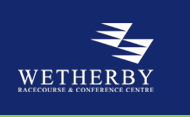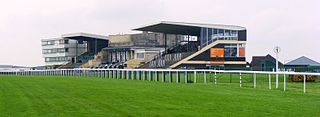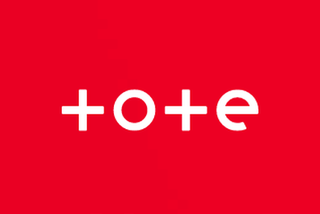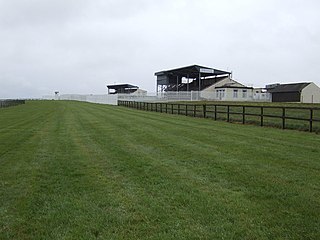Related Research Articles

A bookmaker, bookie, or turf accountant is an organization or a person that accepts and pays out bets on sporting and other events at agreed-upon odds.

Horse racing is the second largest spectator sport in Great Britain, and one of the longest established, with a history dating back many centuries. According to a report by the British Horseracing Authority it generates £3.39 billion total direct and indirect expenditure in the British economy, of which £1.05 Billion is from core racing industry expenditure and the major horse racing events such as Royal Ascot and Cheltenham Festival are important dates in the British and international sporting and society calendar.

Thoroughbred horse racing is a spectator sport in Australia, and gambling on horse races is a very popular pastime with A$14.3 billion wagered in 2009/10 with bookmakers and the Totalisator Agency Board (TAB). The two forms of Thoroughbred horseracing in Australia are flat racing, and races over fences or hurdles in Victoria and South Australia. Thoroughbred racing is the third most attended spectator sport in Australia, behind Australian rules football and rugby league, with almost two million admissions to 360 registered racecourses throughout Australia in 2009/10. Horseracing commenced soon after European settlement, and is now well-appointed with automatic totalizators, starting gates and photo finish cameras on nearly all Australian racecourses.

A tote board is a numeric or alphanumeric display used to convey information, typically at a race track or at a telethon.

In the United Kingdom, Ireland, Australia and New Zealand, a betting shop is a shop away from a racecourse ("off-course") where one can legally place bets in person with a licensed bookmaker. Most shops are part of chains, including William Hill, Ladbrokes, or Coral. In Australia and New Zealand, they are operated by totalisator agencies. In the United States post PASPA, brands like DraftKings, FanDuel and William Hill have a presence. Betting shops include America's Betshop and Betfred.
The Australian and New Zealand punting glossary explains some of the terms, jargon and slang which are commonly used and heard on Australian and New Zealand racecourses, in TABs, on radio, and in the horse racing media. Some terms are peculiar to Australia, such as references to bookmakers, but most are used in both countries.
Fine Cotton was a brown Australian Thoroughbred gelding which was at the centre of a substitution scam which occurred on 18 August 1984, in the Commerce Novice Handicap over 1,500 metres at Eagle Farm Racecourse, Brisbane, Queensland. Although there have been many ring-ins and other illegal scams in Australian racing, the Fine Cotton scandal is infamous in Australia due to the involvement of some of racing's elite.

Wetherby Racecourse is a racecourse situated near the market town of Wetherby in West Yorkshire, England, located 12 miles (19 km) from Leeds city centre. For most of its history the course has hosted only National Hunt racing but staged its first Flat racing fixture in April 2015.

Cartmel Racecourse is a small national hunt racecourse in the village of Cartmel, now in the ceremonial county of Cumbria, historically in Lancashire. Nine racedays are held each year, starting on the Whit Holiday weekend at the end of May and ending on the August Bank Holiday weekend in August Bank Holidays.

Bath Racecourse is a thoroughbred horse racing venue on Lansdown Hill, about 3+1⁄4 miles (5.2 km) northeast of Bath, Somerset, England. It is owned and operated by Arena Racing Company.

The Tote is a British gambling company founded in 1928. It is the largest pool betting operator in the United Kingdom. Headquartered in Wigan, England, its main products are sports betting and online casino.

Tote Ireland is an Irish gambling company founded in 1932. It is the largest pool betting operator in Ireland. Its sole product is sports betting. Headquartered in The Curragh, it has responsibility for the operation of Tote retail outlets across all 26 racecourses in Ireland.

The Yellow Sam betting coup was a successful sports betting coup, widely remembered within Irish and British thoroughbred horse racing.
Bernard Joseph Curley was a racehorse trainer, gambler and founder of the Zambian charity DAFA from Northern Ireland
Trodmore Racecourse was the name of a fictitious racecourse, supposedly in Cornwall. On 1 August 1898 it was the subject of an elaborate punting scam.
Intermezzo, was a British Thoroughbred racehorse and sire. He won two of his three races as a two-year-old in 1968 and went on to record his most important win in the Classic St. Leger Stakes at Doncaster in September 1969. He raced without winning in 1970 and was exported to stand as stallion in Japan, where he had some success as a sire of winners.
Edward O'Grady is an champion Irish National Hunt racehorse trainer. Throughout the 1980s and 1990s, O'Grady was the leading Irish trainer at Cheltenham by number of winners. He was played by Pierce Brosnan in the 1980 film Murphy's Stroke.

Annie Power is an Irish Thoroughbred racehorse. A National Hunt horse specialising in hurdle racing, she won fifteen of her seventeen races including the Johnstown Novice Hurdle, Irish Stallion Farms EBF Mares Novice Hurdle, Ascot Hurdle, Doncaster Mares' Hurdle and Mares Champion Hurdle. In 2016, she became the first mare for twenty two years to win the Champion Hurdle.

Galileo Gold is a British Thoroughbred racehorse. As a two-year-old he won the Vintage Stakes and finished third in the Prix Jean-Luc Lagardère. On his three-year-old debut he won the classic 2000 Guineas and went on to finish second in the Irish 2,000 Guineas before winning the St James's Palace Stakes.

Betting on horse racing or horse betting commonly occurs at many horse races. Modern horse betting started in Great Britain in the early 1600s during the reign of King James I. Gamblers can stake money on the final placement of the horses taking part in a race. Gambling on horses is, however, prohibited at some racetracks. For example, because of a law passed in 1951, betting is illegal in Springdale Race Course, home of the nationally renowned Toronto-Dominion Bank Carolina Cup and Colonial Cup Steeplechase in Camden, South Carolina.
References
- 1 2 3 "Scannel - A Nearly Perfect Coup: The Gay Future Affair", RTÉ, 24 October 2005
- 1 2 3 Dan Buckley "The scandals that tarnished the sport of kings", Irish Examiner, 2 September 2004
- 1 2 Greg Wood "Racing: A racing scam in the tradition of Trodmore", The Independent, 29 August 1998
- 1 2 Chris Cook "Gay Future betting plot still holds fascination at Cartmel, 40 years on", The Guardian, 25 August 2014
- 1 2 3 4 5 Liam O'Brien What’s the SP?: Betting on Racing: An A-Z, ebook partnership, p.61
- ↑ "Betting scams that left racing in a fix", Evening Standard, 2 September 2004
- 1 2 Nick Townsend The Sure Thing: The Greatest Coup in Horse Racing History, London: Century, 2014, p.243
- ↑ Matt Majendie "Three decades of scandal", BBC Sport, 5 October 2002
- 1 2 3 Andrew Rosthorn "Gay Future remembered at Cartmel during spooky power cut" Archived 2014-09-03 at the Wayback Machine , Lancaster & North West Magazine, 27 August 2014